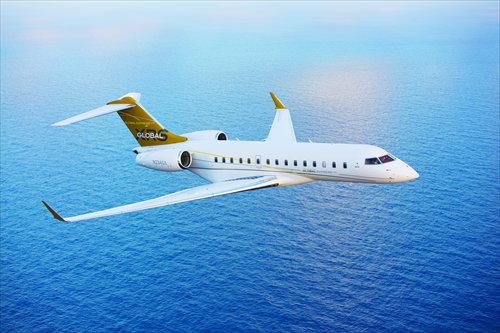HOME >> BUSINESS
Private jet market faces turbulence
Source:Global Times Published: 2014-1-15 19:58:01

Industry group argues jets are not luxuries, but transportation tools for businessmen. Photo: Courtesy of CBAG
China's corporate jet market, which has outstripped the US market in the last five years, would seem to have good prospects, but analysts warn that obstacles could retard its growth.China has become one of the fastest growing markets for corporate jets, comprising 25 percent of global orders. In 2005, Airbus sold its first corporate jet to China. In the next five years, Airbus sold China more than 20 planes, according to the Civil Aviation Resource Net of China in April 2013.
A recent report from the General Aviation Manufacturers Association in the US said that the increase in corporate plane sales in America has been about 2 to 3 percent annually, while this number was 20 to 30 percent in China. By April of last year, there were about 15 general aviation companies, 166 corporate jets, and 11,810 private flights in China.
Despite the growing market, factors such as inadequate policy support from authorities and public misconceptions have cast a shadow upon the industry.
Zhao Juan, marketing director of China Business Aviation Group (CBAG), a leading business aviation consultancy, told the Global Times that its customers are all rich, but the tax burden on the planes still represents a substantial ongoing burden. The cost of a corporate aircraft includes not just the purchase price, but also the ongoing maintenance and upkeep costs, estimated at 10 million yuan ($1.6 million) a year for a 250 million yuan plane.
The jets face a heavy 17 percent value-added tax and five percent tariffs when they are imported into China, and currently face the risk of being defined as a luxury and thus taxed even more. Zhao argues that the planes are not a luxury, but a mode of transportation for businessmen who must travel for their jobs.
The complex red tape required before each flight makes it nearly impossible to fly between several cities by corporate plane in a single day, said Zhao.
At airports, the basic infrastructure to support corporate jets is so insufficient that they must wait in a queue for takeoff and landing. Currently, China has only about 200 airports that are equipped to handle corporate planes, as compared to 2,000 in the US, said Zhao. Moreover, pilots are in short supply.
Officials from the industry are pushing back. During an interview with CBNweekly in October 2013, Edward Bolen, president and CEO of the US National Business Aviation Association, warned that the regulatory environment threatens the growth of the industry. "For any industry, the higher the taxes, the slower the growth rate," he said, noting that he is hoping to see a friendlier environment for the industry in China in the future.
Posted in: Press Release